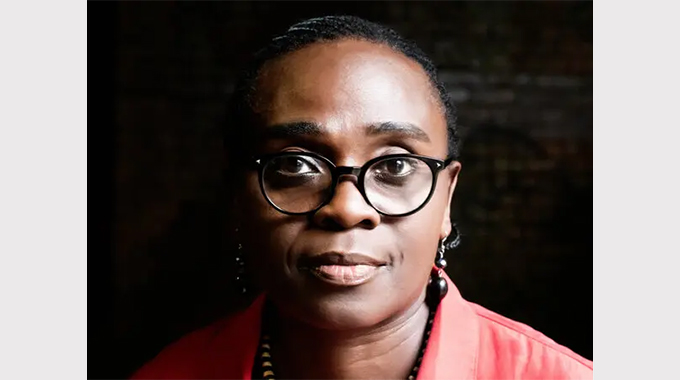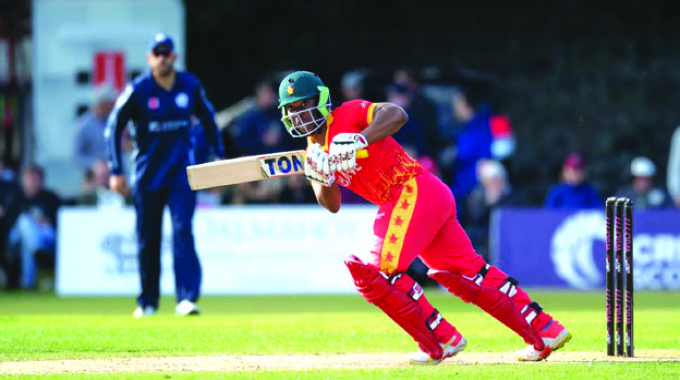Beautiful book to help men understand women better

Elliot Ziwira-At the Bookstore
The First Woman by Jennifer Makumbi is a beautiful book for women, about women, that should be read by all men who would like to understand women.
From the small Ugandan rural village of Nattetta, young Kirabo tells us her captivating story.
The year is 1975 and 12-year-old Kirabo is on the pre-pubescent prickly path from girl to womanhood. She has questions about everything she sees and hears, and she definitely has questions as to the whereabouts of the mother she has never known.
The book is in five distinct sections, with each showing an older and more mature Kirabo, a Uganda of decades past and all the nuances and revelations of growing up.
Brought up by loving grandparents with sporadic visits from her father, Tom, who has made a corporate executive life for himself in the bright lights of the capital city, Kampala, Kirabo discovers an inner rebellious self that flies out of her body in a bid to locate her mother.
A visit to the village’s blind witch, Nsuuta, sets off a chain of events that move her from the security of the gentle rustic life she knows into the big city, with a stepmother who has no intention of accepting her and siblings she was unaware existed.
Woven within this tale is the Ugandan creation myth of the first woman — Nnambi.
Kirabo begins to learn about this folklore from Nsuuta, unaware that she is being drawn in for the village witch’s own slightly less noble and mysterious reasons.
“You do not realise, but ancients had such an irrational fear of the nature of women that they would try anything to keep them under control. They supported this story by pointing to the sea. Apparently both women and the sea were baffling, changeful: today they are this, tomorrow they are that.”
The author has the gift of being able to establish scenes and build characters that begin to make you feel as if you know these people and places outside the pages of the book, setting off your own recollections of what it felt like to grow up and perfectly capturing the journey every child makes into adulthood.
“Everywhere was a lightness in the air, one that came only when grown-ups were away. All that loving, that making sure you are okay and behaving, got heavy sometimes.”
Its warmth is set against the chilling backdrop of Idi Amin’s rule and war with Tanzania, highlighting some of the harsh realities of being a young adult at such a tumultuous and violent time in Ugandan history.
“The last time Kirabo was at home, before Christmas, she had slept on the roof with Aunt Abi and her next-door neighbours, because across the road the family who lived in the house with a green roof had been massacred.”
There are nonetheless almost flippant comments about the effect of his regime, which showed a resilience to the callous control imposed on people’s lives.
“She wore an Amin, leave-me-alone maxi dress, the fashion after the president banned short skirts.”
Entertaining moments
Particularly memorable among the many entertaining moments throughout the book, are how differing members of Kirabo’s family react to her blossoming sexuality. This is referred to as her “ruins”, by an increasingly alarmed grandmother and she is told, “That is your flower, explore it, love it, find out what it is capable of before you hand it over to a man” by her city-dwelling and somewhat bohemian Aunt Abi.
Another section of the book, lays bare the colonial Uganda of the 1940s.
“They were the ones who could afford to buy time and fasten it on their wrists after the British took the natural clock out of the sky and chopped the day into twenty-four segments.”
It goes on to cleverly use a series of letters between Kirabo’s grandmother, Alikisa, and Nsuuta the village witch, to explain the past and shadowy events that led to the family and village commotions.
As Kirabo finds herself part of the future, the author takes us back decades and forward again to the 80s, seamlessly creating for the reader all the answers to questions you may have had.
Throughout this jubilant, gorgeously penned celebration of women, Jennifer Makumbi has been perceptive, humorous and revealing about a young woman’s journey, navigating her way through a changing body, family, friendships, folklore and love in a time and place where being a woman was never going to be easy.
It is a beautiful book for women, about women, that should be read by all men who would like to understand women!
About the author
Born in Kampala, Uganda, Makumbi was two years old when her parents separated. She would not meet her mother again until she was 10.
Living with her grandfather until she was four and later with an aunt, her own early life is clearly an inspiration behind The First Woman.
The impact of Amin’s regime was a very personal one for her. Her father, who was a banker, was arrested and tortured and although he survived the ordeal, he sadly spent the rest of his life suffering from mental health issues.
Her writing career began at the age of 15 when she wrote, directed and produced a play for a school competition, for which she was awarded third prize.
Third prizes for writing became the story of her teens but that would certainly change in the future!
Undertaking a BA in teaching English and literature in English at the Islamic University in Uganda, she went on to teach in the country until 2001, when she began to study for an MA in creative writing at Manchester Metropolitan University in the UK, where she now currently lectures.
She also completed a PhD in creative writing at Lancaster University.
Kintu, her first novel, became involved in a legal wrangle. She entered the story for the Kwani Manuscript Prize in 2013, and won.
The award was started in 2012 by the Kenya-based literary journal of the same name. The book was published by Kwani, which later experienced problems, prompting the author to withdraw the rights of the novel, which were consequently sold to Oneworld.
Several years later in 2019, whilst promoting her collection of short stories, Manchester Happened, in Uganda, a number of fans began to appear with the Kwani publication of Kintu, which they had purchased recently, although printing had ceased three years earlier.
On further investigation it transpired these were pirate copies of the book and no royalties would ever reach the author. While the legal system works its slow wheels, Makumbi has urged her readers not to purchase the illegal version. Kintu went on to win one of the world’s richest literary prizes, the Windham-Campbell Prize in 2018.
Granta literary magazine printed her short story, ‘Let’s Tell This Story Properly’, in 2014, which later went on to become the title story of Manchester Happened.
The First Woman was published in hardback in 2020 and in paperback last year. In between it won the Jhalak Prize – an award set up five years ago for British or British-resident writers of colour.
She currently lives in Manchester with her husband and son and in between writing and lecturing, also managed to contribute to the 2019 anthology, New Daughters of Africa, edited by Margaret Busby.
Jennifer Makumbi was one of the Most Influential African of 2020. — New African









Comments